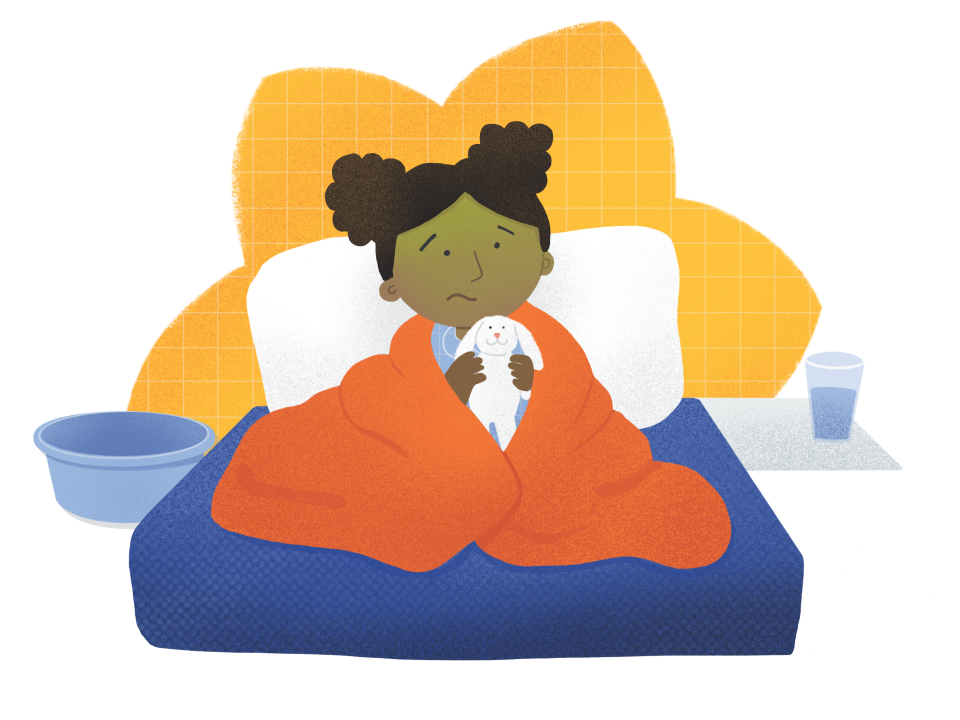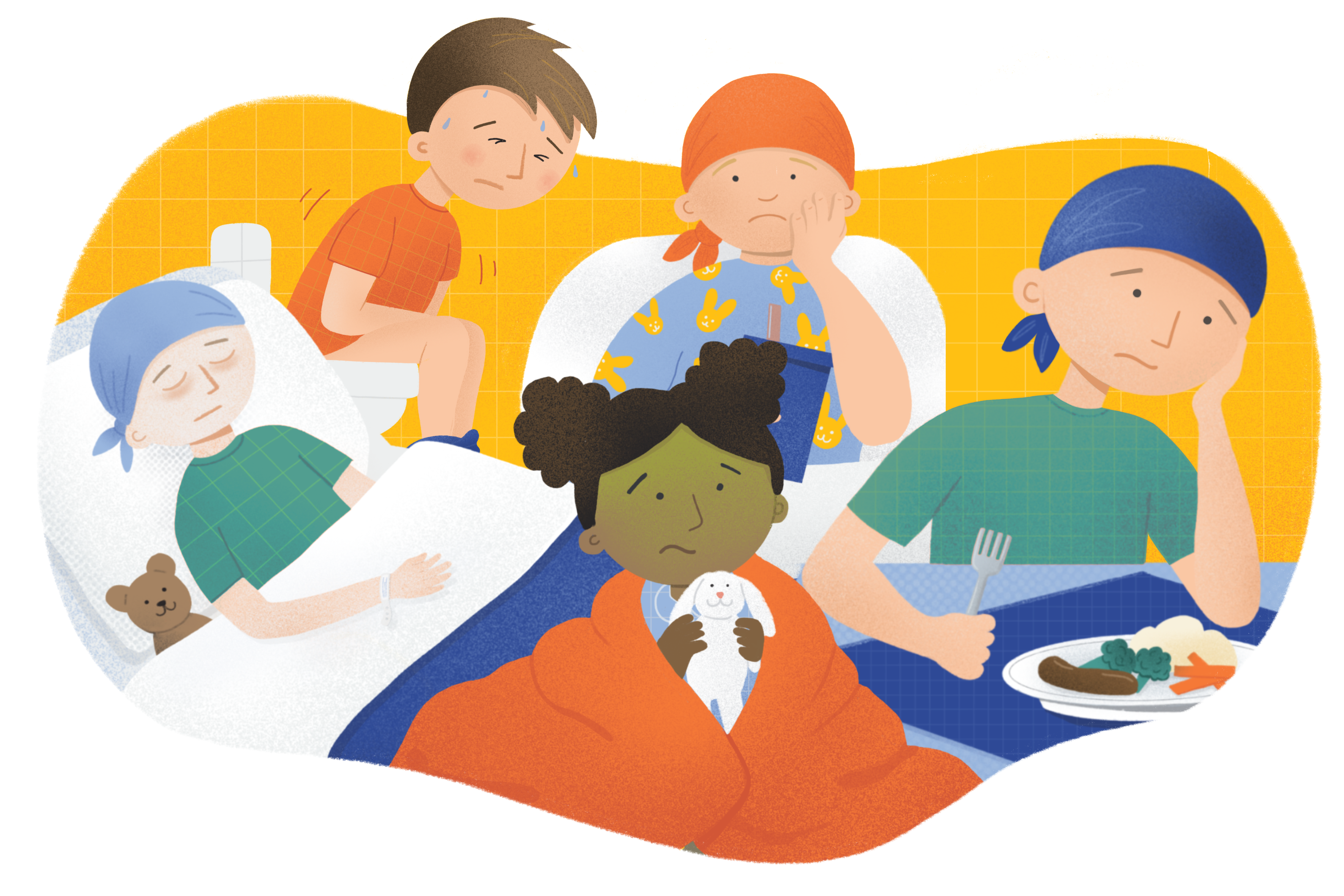Nausea and vomiting in children

Some chemotherapy medicines can make your child feel sick (nausea) or get sick (vomiting). It depends on the type and amount of treatment your child has. For example, some chemotherapy drugs can cause nausea and vomiting and others don’t.
Radiotherapy to the tummy area can also cause nausea.
The vomiting can start immediately after the chemotherapy begins and may last a few hours. Sometimes, nausea and vomiting may last for some days but you will be given anti-sickness medicines for your child.
How is it treated?
There are many effective anti‐sickness medicines to prevent or lessen your child’s sickness. Sickness usually settles when the medicines are taken regularly. The medical team will give you a plan on how best to manage any nausea and vomiting, based on your child's treatment and their reaction to it.
Tips to help
- Tell the nurses if your child is feeling sick. They can give you medicines to help.
- Carefully follow the instructions about how to take any anti-sickness medicines.
- It is a good idea to have a sick bowl for your child when travelling to and from the hospital.
- If your child is feeling sick, encourage them to eat when and whatever they feel able to. Eating small amounts often, rather than large meals, may help.
- Try and find out if any foods make the nausea worse, and avoid them. For example, greasy, sweet or spicy foods, or foods with a strong smell.
- Once they recover from their ‘sick days’ it is important to encourage your child to eat a good quality diet. The dietitian can help and advise you about this.
- If your child has been vomiting, encourage them to drink water or other clear fluids, to avoid dehydration. If the vomiting continues, contact the hospital.
For more information
Phone
1800 200 700



